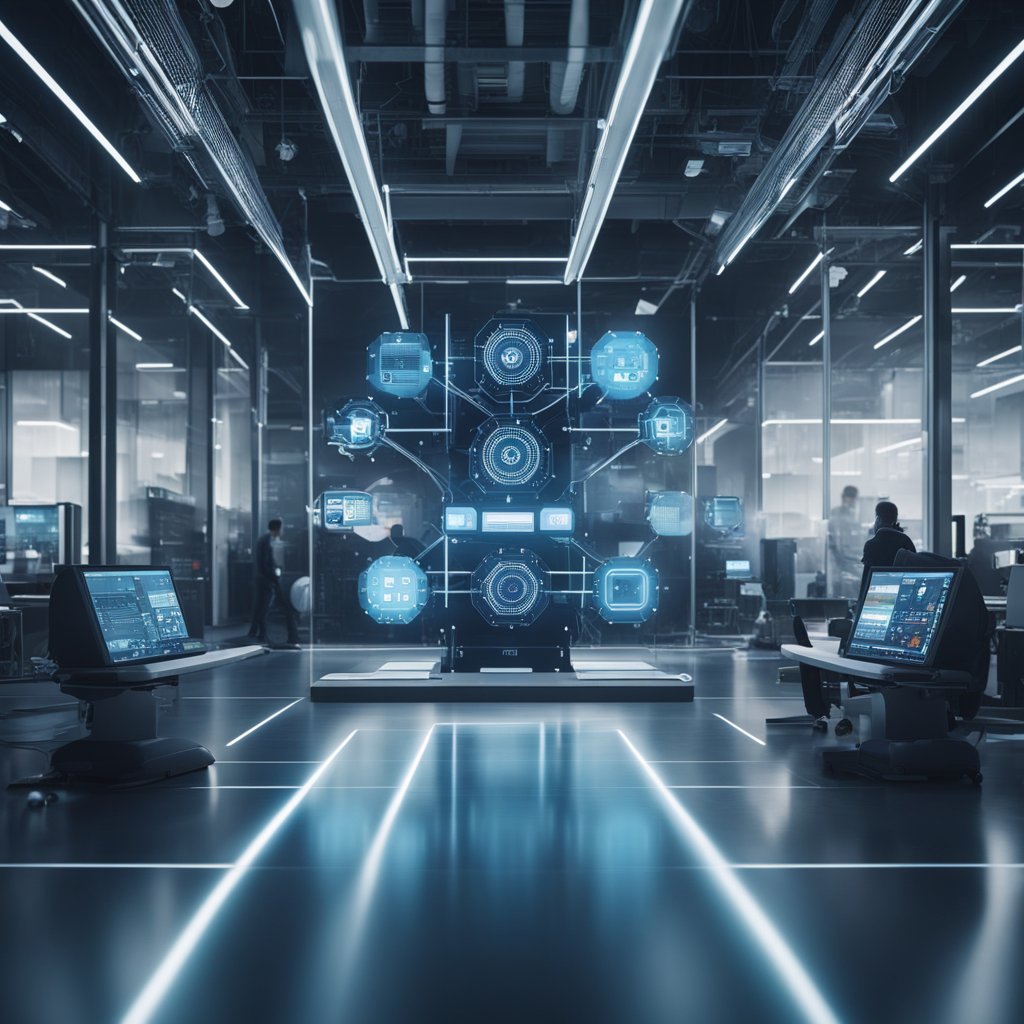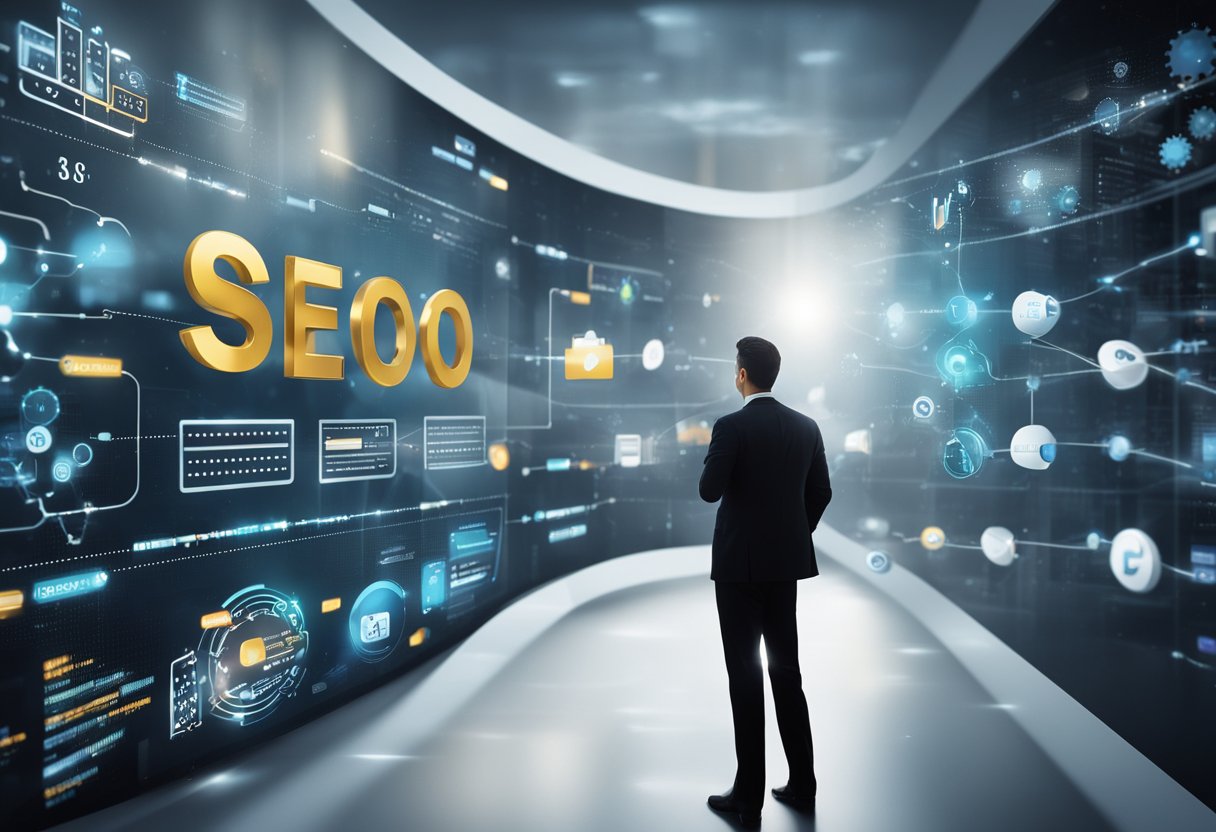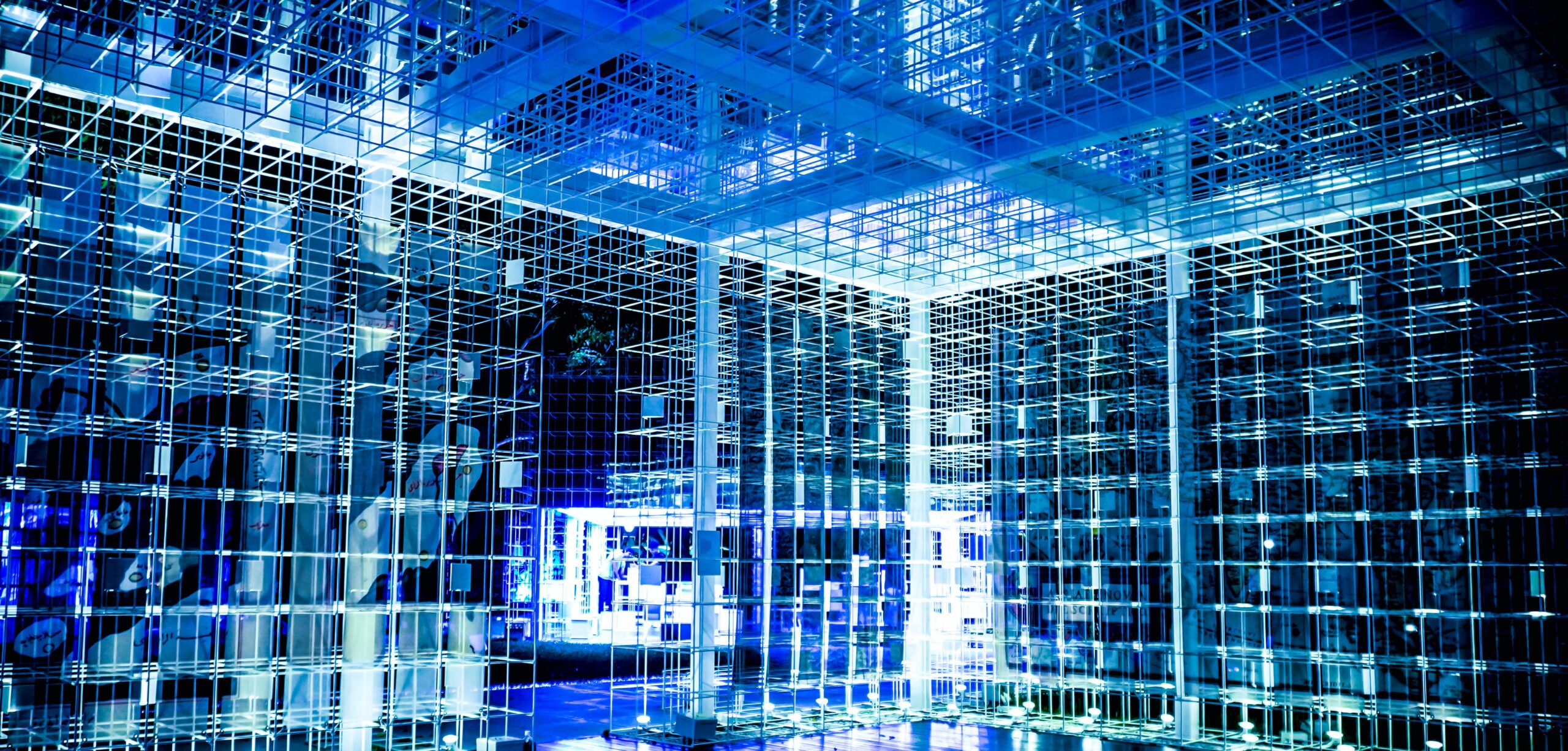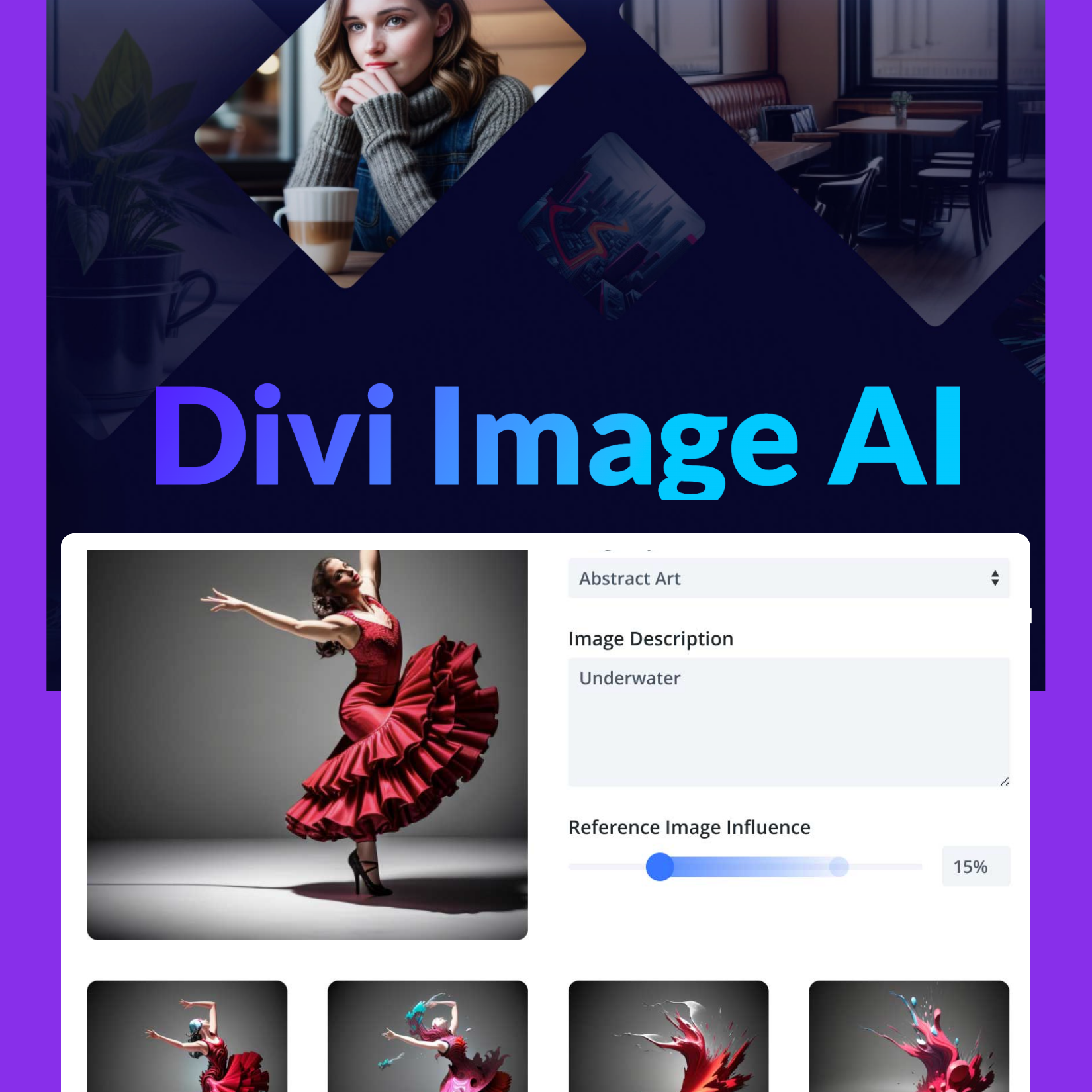1 Introduction
Artificial Intelligence (AI) is a rapidly evolving technology that has the potential to revolutionize the way we live and work.
We are already seeing the impact of AI in various industries, from healthcare to finance, and it is only going to become more prevalent in the future.
Understanding AI is important because it is not just one thing. AI is a constellation of many different technologies working together to enable machines to sense, comprehend, act, and learn with human-like levels of intelligence.
It makes it possible for machines to learn from experience, adjust to new inputs and perform human-like tasks.
Most AI examples that you hear about today rely heavily on deep learning and natural language processing, which enable machines to understand and respond to human language.
The importance of AI cannot be overstated. AI has the potential to transform industries, create new jobs, and improve our quality of life.
It can be used to increase our productivity, help us solve some of the world’s biggest problems, from climate change to disease, and it can help us make more informed decisions.
As AI continues to evolve, it will become even more important to understand how it works and how it can be used to improve our daily lives.
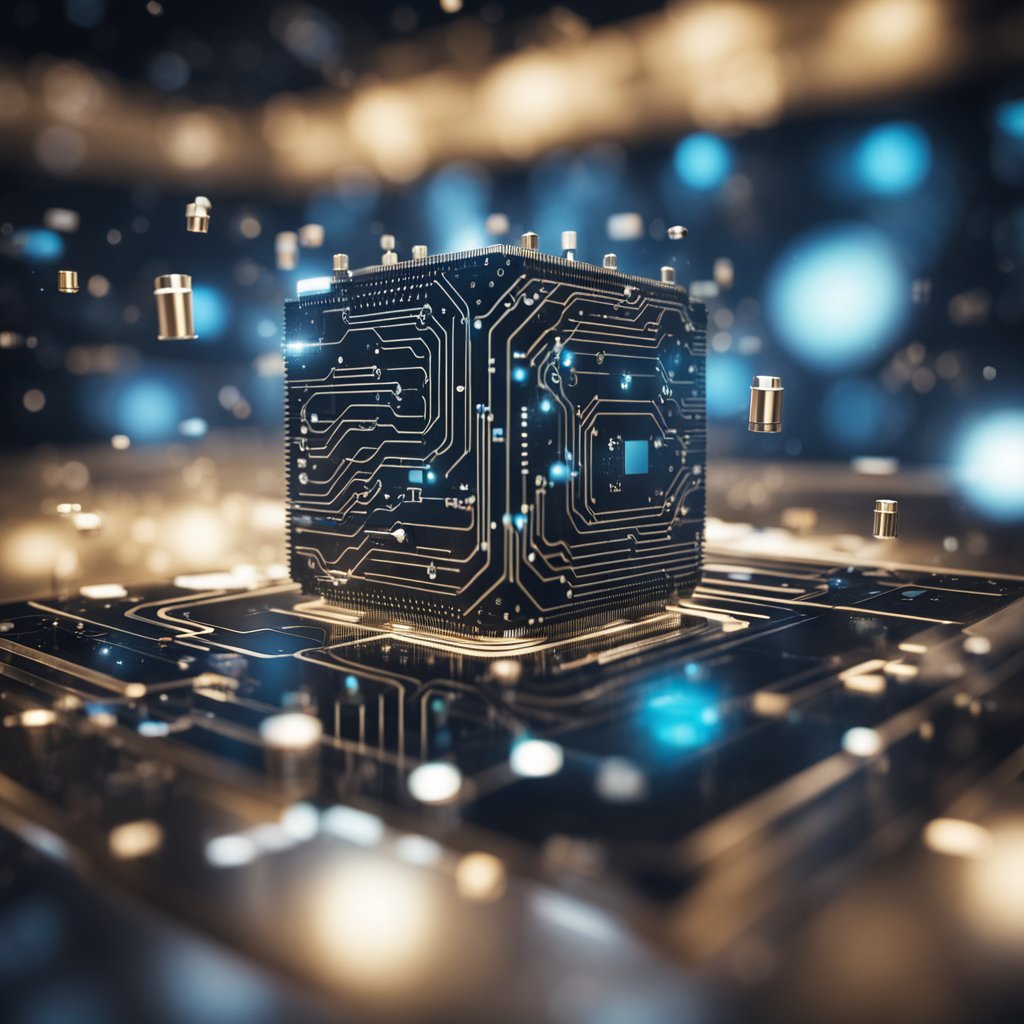
Key Takeaways
- Transformative Impact: AI is revolutionizing various industries, from healthcare and finance to manufacturing and transportation, by automating tasks, enhancing decision-making, and improving efficiency.
- Data-Driven Insights: AI relies on vast amounts of data to learn and make predictions. Access to quality data is crucial for AI systems to perform effectively.
- Automation and Efficiency: AI can automate repetitive tasks, saving time and reducing errors. This leads to increased productivity and cost savings for businesses.
- Personalization: AI is behind personalized recommendations in e-commerce, content streaming, and more, providing users with a tailored experience.
- Healthcare Advancements: AI is improving disease diagnosis, drug discovery, and healthcare management, offering the potential for more precise treatments.
- Ethical Considerations: As AI grows in influence, ethical concerns about bias, privacy, and job displacement need to be addressed.
- AI in Security: AI plays a role in cybersecurity by identifying threats and vulnerabilities in real-time, helping to protect sensitive data.
- Future Workforce: AI is changing the job landscape, leading to the need for reskilling and upskilling to adapt to the evolving job market.
- Research and Development: Ongoing advancements in AI research are vital to harness its potential for societal benefit and address its limitations.
- Policy and Regulation: Governments are developing policies and regulations to ensure the responsible development and use of AI technologies.

2 Understanding AI
Artificial Intelligence (AI) is a branch of computer science that focuses on creating intelligent machines that can perform tasks that typically require human intelligence.
AI is an umbrella term that encompasses several subfields, including machine learning, natural language processing, robotics, and computer vision.
3 Definition of AI
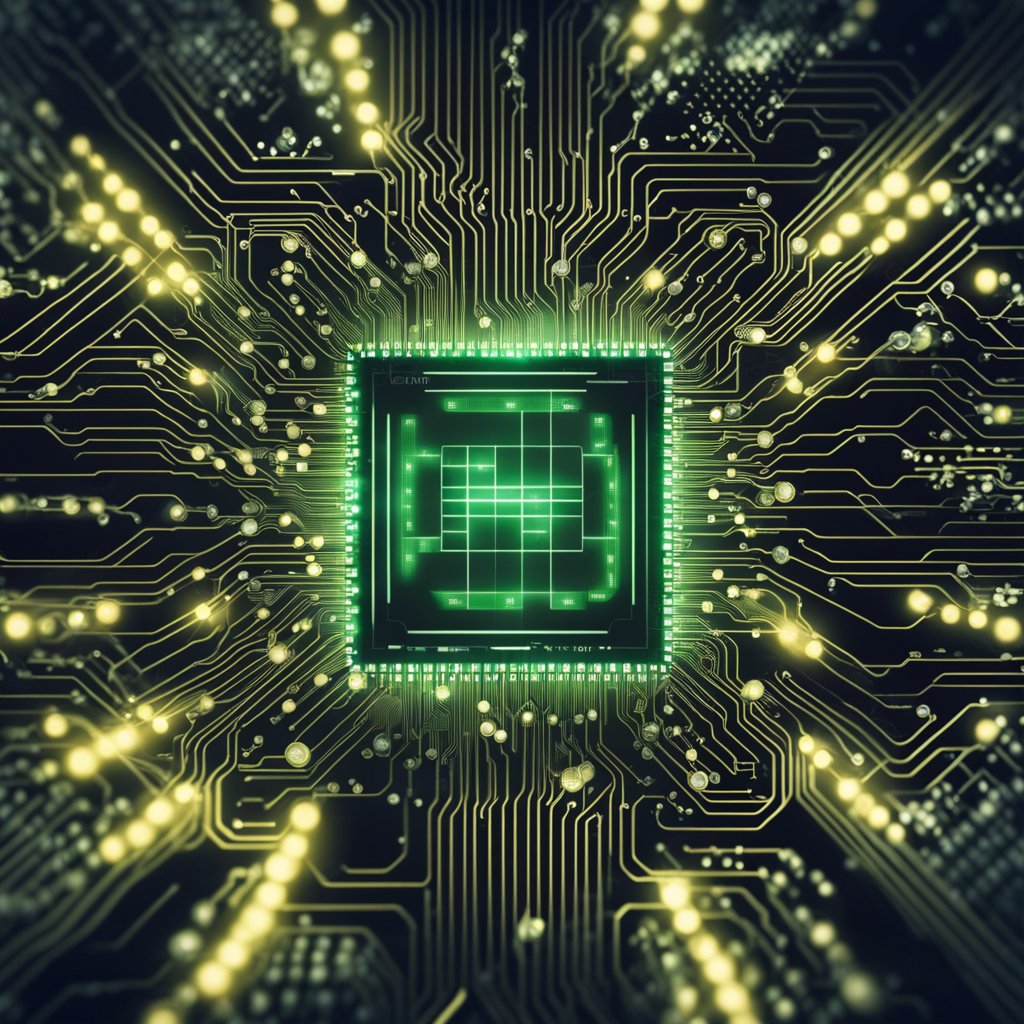
AI is defined as the theory and development of computer systems that can perform tasks that typically require human intelligence.
These tasks may include speech recognition, problem-solving, decision-making, and language translation.
AI systems are designed to learn from data, recognize patterns, and make decisions based on that data.
AI systems can be classified into two main categories: narrow or weak AI and general or strong AI.
Narrow AI is designed to perform a specific task, such as playing chess or detecting fraud.
In contrast, general AI is designed to perform any intellectual task that a human can do.
One of the most significant advantages of AI is its ability to automate repetitive tasks, freeing up human workers to focus on more complex and creative tasks.
AI can also help improve decision-making by analyzing large amounts of data and identifying patterns that humans may not be able to see.
However, there are also concerns about the impact of AI on jobs and society. As AI becomes more advanced, it may replace human workers in some industries, leading to job losses and economic disruption.
Additionally, there are concerns about the potential misuse of AI, such as the development of autonomous weapons.
In conclusion, AI has the potential to revolutionize many industries and improve our lives in numerous ways.
However, it is essential to approach the development and deployment of AI with caution and consideration for its potential impacts on society.
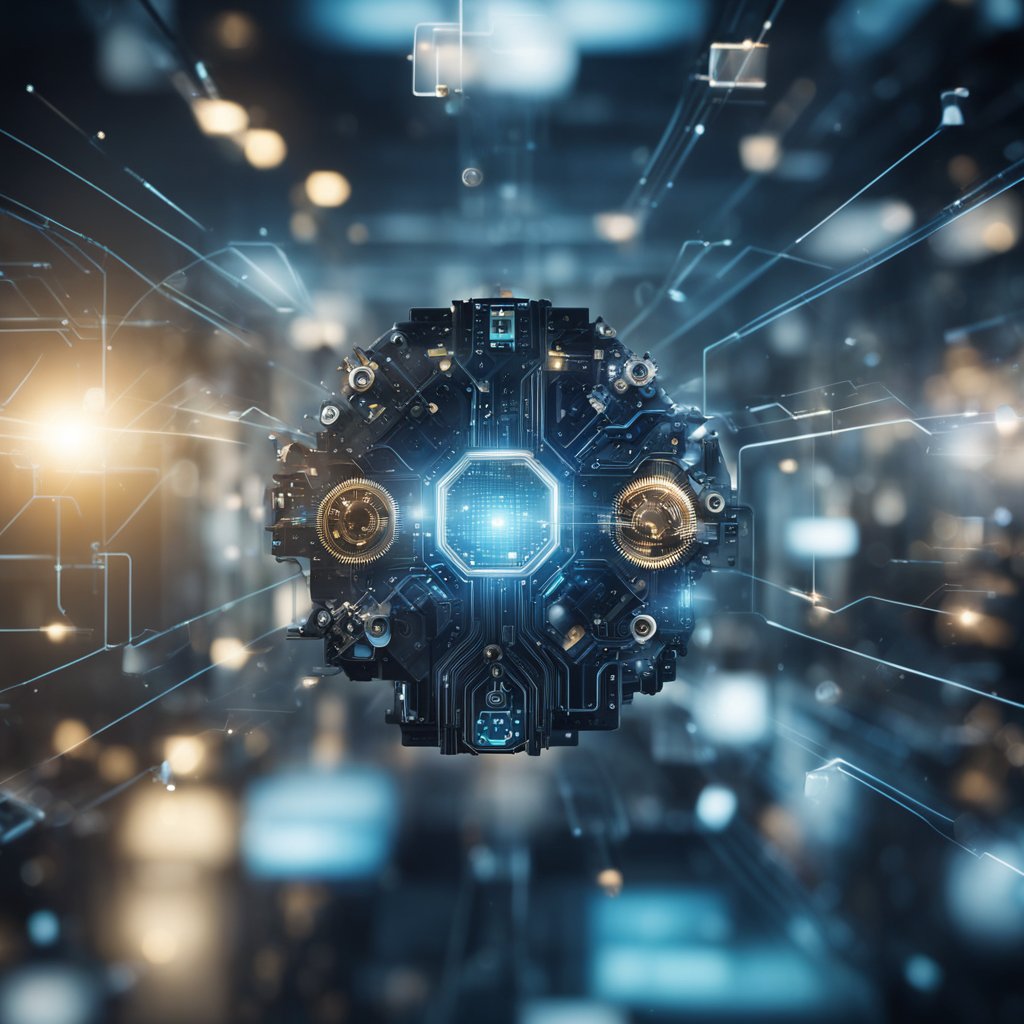
4 Importance of AI
- Artificial Intelligence (AI) is playing a pivotal role in shaping the future and the way we conduct business, offering numerous advantages that are impossible to ignore. Firstly, AI is enhancing efficiency and productivity. Automation of routine tasks and data analysis allows employees to focus on more creative and strategic aspects in the work environment. This leads to cost savings and streamlined operations, giving businesses a competitive advantage edge in a fast-paced evolving market.
- Secondly, Artificial Intelligence (AI) enables data-driven decision making. With the power to analyze vast datasets quickly, businesses can gain valuable insights into customer behavior, market trends, and operational performance. This data-driven approach not only enhances the understanding of the market but also facilitates personalization of our customer experience, which is vital for modern businesses striving to meet evolving customer expectations.
- Moreover, (AI) enhances customer services. Chatbots and virtual assistants offer immediate and in some cases personalized support improvement, and response time, thereby reducing human errors.
- This fosters customer satisfaction and loyalty, as businesses can deliver a consistent and high-quality service experience.
- AI also fuels predictive analytics, enabling companies to forecast market changes and proactively respond to emerging trends, giving us a substantial advantage in the highly competitive business landscape.
- Lastly, AI aids in risk management and security. Advanced AI algorithms can detect anomalies and potential threats, making it easier to protect valuable data and safeguard against cyberattacks. By reducing vulnerabilities and improving security measures, businesses can enhance our reputation and build trust with customers and partners.
5 AI in Business
One of the most significant impacts of AI is in the business world. AI can help businesses automate tedious and repetitive tasks, allowing employees to focus on more complex and creative work.
Additionally, AI can help businesses make better decisions by providing data-driven insights.
For example, AI-powered predictive analytics can help businesses forecast demand, optimize pricing, and improve supply chain management.
AI (Artificial Intelligence) has become a transformative force in the business world, reshaping various aspects of operations, decision-making, and overall productivity.
The statement highlights some key ways AI is making a significant impact in business, and we can delve into these aspects in more detail:
Automation of Tedious Tasks: One of the most immediate benefits of AI in business is its ability to automate repetitive and time-consuming tasks.
This includes data entry, customer support inquiries, routine administrative work, and more.
AI-driven chatbots, for example, can handle customer inquiries 24/7, reducing the burden on human agents and improving response times.
Enhancing Employee Productivity: By taking over repetitive tasks, AI allows employees to focus on higher-value, creative, and strategic work.
This shift can lead to increased job satisfaction, as employees are relieved of monotonous responsibilities and can instead engage in tasks that require critical thinking, problem-solving, and innovation.
Data-Driven Decision-Making: AI systems are capable of processing and analyzing vast amounts of data at incredible speeds.
This capability enables businesses to make decisions based on data-driven insights rather than relying solely on intuition or past experiences.
AI can identify trends, correlations, and anomalies within data, providing a more comprehensive and accurate view of the business landscape.
Predictive Analytics: AI-driven predictive analytics is particularly valuable for businesses. It allows them to forecast future trends, demand, and customer behavior.
For example, in retail, AI can analyze historical sales data, external factors (e.g., weather, holidays), and even social media sentiment to predict what products will sell best and when. This enables better inventory management and demand forecasting.
Pricing Optimization: AI can help businesses optimize pricing strategies dynamically. It can analyze market conditions, competitor pricing, and historical sales data to recommend the most profitable price points.
This flexibility can maximize revenue and adapt to changing market dynamics.
Supply Chain Management: AI is also instrumental in supply chain optimization. By analyzing factors like transportation costs, production efficiency, and demand fluctuations.
AI systems can help businesses make decisions about sourcing, inventory levels, and distribution that result in cost savings and improved customer service.
Personalization and Customer Experience: AI is used to create personalized experiences for customers.
Through data analysis, AI can understand customer preferences and behavior, allowing businesses to offer tailored product recommendations, content, and marketing messages.
This personalization can significantly enhance customer satisfaction and drive sales.
Risk Management: AI’s ability to process vast datasets quickly is invaluable for risk assessment and fraud detection.
Banks and financial institutions use AI to detect unusual patterns in transactions, helping to prevent fraudulent activities and ensure compliance with regulations.
Streamlining Operations: AI can optimize business processes, such as HR recruitment, by scanning resumes, conducting preliminary interviews, and assessing candidate fit.
In manufacturing, it can monitor and control equipment, detect faults in real-time, and predict maintenance needs, reducing downtime.
Competitive Advantage: Businesses that effectively leverage AI gain a competitive edge.
They can respond more nimbly to market changes, serve customers better, and innovate more rapidly.
This competitive advantage can be a game-changer in today’s fast-paced business environment.
AI can also help businesses improve customer experiences. Chatbots powered by AI can provide customers with instant support, reducing wait times and improving customer satisfaction.
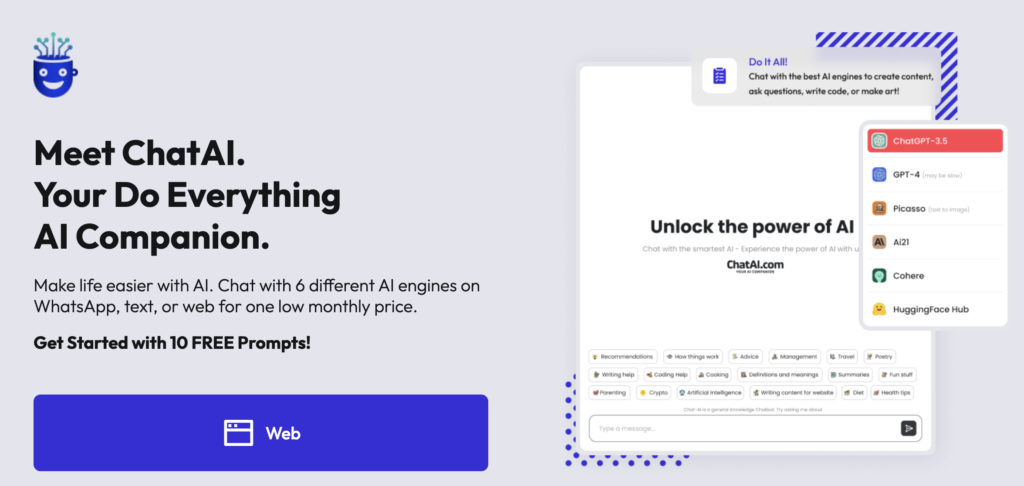
AI-powered personalization can also help businesses tailor their products and services to individual customers, improving customer loyalty and retention.
Furthermore, AI can help businesses reduce costs and increase efficiency.
For example, AI-powered robotic process automation can help businesses automate routine tasks, reducing the need for human intervention.
This can lead to cost savings and increased productivity.
In conclusion, AI is becoming increasingly important in the business world, and its impact is only going to grow.
Businesses that embrace AI will be better positioned to compete and succeed in the future.

6 AI in Various Industries
Artificial Intelligence has been adopted in various industries to automate tasks, improve efficiency, and enhance customer experience.
In this section, we will explore how AI is being used in transportation.
AI in Transportation
AI is transforming the transportation industry by improving safety, reducing costs, and optimizing operations. Here are some examples of how AI is being used in transportation:
- Autonomous Vehicles: AI-powered autonomous vehicles are being developed by companies like Tesla, Google, and Uber. These vehicles use sensors and cameras to detect obstacles, pedestrians, and other vehicles on the road and make decisions based on that data. With autonomous vehicles, we can reduce accidents caused by human error and improve traffic flow.
- Route Optimization: AI-powered route optimization software is being used by logistics companies to optimize delivery routes. This software takes into account factors like traffic, weather, and road conditions to determine the most efficient route for delivery vehicles. By optimizing routes, companies can reduce fuel costs, improve delivery times, and reduce carbon emissions.
- Predictive Maintenance: AI-powered predictive maintenance software is being used by transportation companies to predict when vehicles and equipment will need maintenance. This software uses data from sensors and other sources to detect patterns and predict when maintenance will be needed. By predicting maintenance needs, companies can reduce downtime, improve safety, and extend the lifespan of their vehicles and equipment.
- Healthcare: AI is revolutionizing healthcare with applications in medical diagnosis, patient care, and administrative tasks. It can analyze medical images, assist in surgery, predict disease outbreaks, and personalize treatment plans.
- Finance and Banking: In finance, AI is employed for fraud detection, algorithmic trading, risk assessment, and customer service. Chatbots and robo-advisors are also becoming increasingly common in the banking sector.
- Retail and E-Commerce: AI is used for demand forecasting, inventory management, recommendation engines, and chatbots for customer support. It enhances the shopping experience by personalizing product recommendations.
- Manufacturing: AI-driven automation is transforming manufacturing through predictive maintenance, quality control, and process optimization. Industrial robots with AI capabilities are improving productivity.
- Energy and Utilities: AI helps in optimizing energy generation, reducing energy consumption, and managing power grids. It’s used for predictive maintenance of equipment in the utilities sector.
- Agriculture: AI is utilized for precision agriculture, enabling farmers to optimize crop yields, reduce resource usage, and monitor plant health using drones and sensors.
- Education: AI-powered tools aid in personalized learning, intelligent tutoring systems, and automated grading. They offer students customized learning experiences.
- Media and Entertainment: AI is used for content creation and recommendation, content creation (like AI-generated music and art), and video analysis for copyright protection and content moderation.

While AI is transforming the transportation industry by improving safety, reducing costs, and optimizing operations.
With the adoption of AI-powered autonomous vehicles, route optimization software, and predictive maintenance software, we can expect to see further improvements in the transportation industry in the years to come.
7 Future of AI
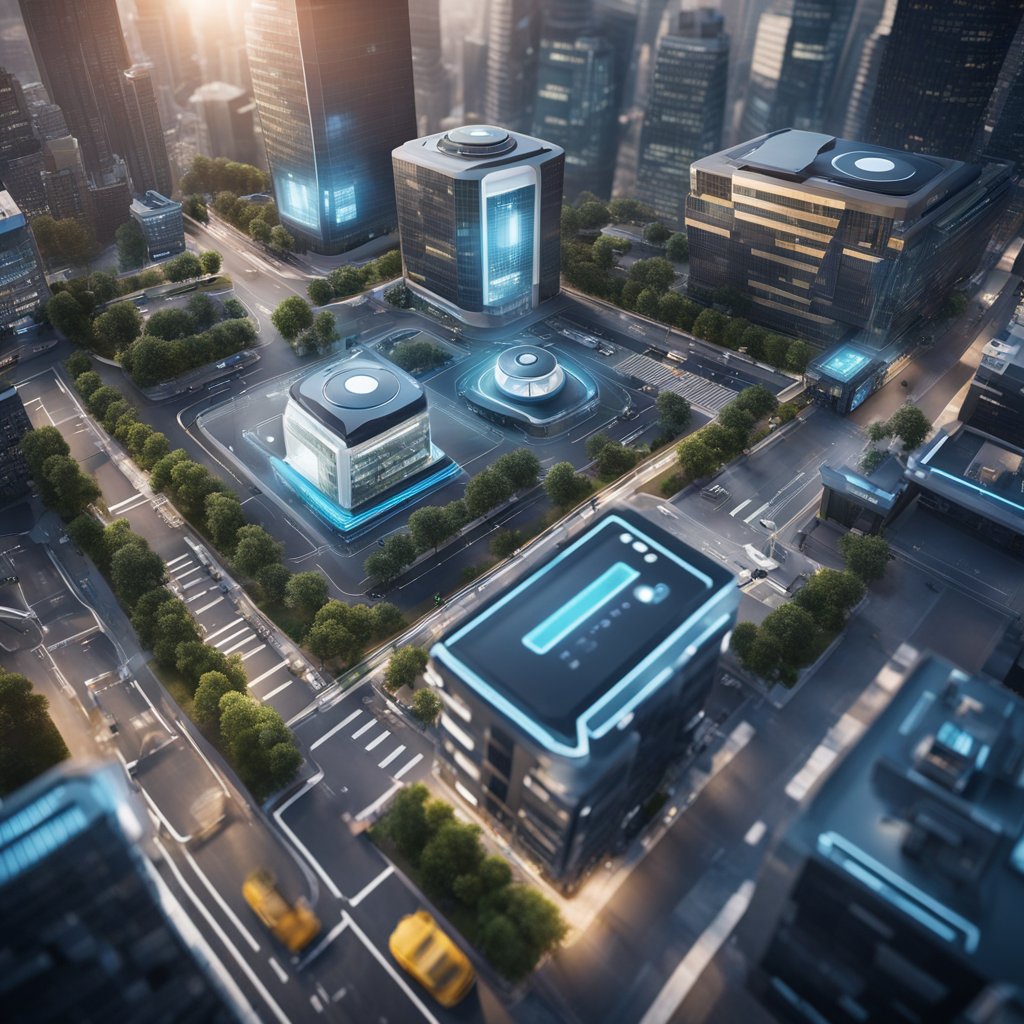
Artificial Intelligence (AI) is rapidly evolving and has the potential to transform various industries.
The future of AI is exciting, and it is expected to have a significant impact on our lives.
In this section, we will explore the trends and challenges that we can expect in the future of AI.
8 AI Trends
The future of AI is promising, and we can expect to see several trends in the coming years. These trends include:
- Increased Automation: AI will continue to automate various tasks, making them more efficient and cost-effective.
- Personalization: AI will become more personalized, providing tailored solutions to individual users.
- Increased Adoption: AI will become more widespread, and we can expect to see it being used in various industries, including healthcare, finance, and transportation.
- Improved Decision Making: AI will help businesses and individuals make better decisions by providing them with accurate data and insights.
- Improved Customer Experience: AI will help businesses provide better customer service by automating customer interactions and providing personalized solutions.
9 AI Challenges
While the future of AI is exciting, there are also several challenges that we need to address. These challenges include:
- Data Privacy: As AI becomes more widespread, data privacy concerns will become more significant. We need to ensure that personal data is protected and used ethically.
- Job Displacement: AI will automate various tasks, leading to job displacement in some industries. We need to ensure that workers are trained for new roles and that there is a smooth transition.
- Bias: AI algorithms can be biased, leading to unfair decisions. We need to ensure that AI is developed and used ethically and that it is free from bias.
- Regulation: As AI becomes more widespread, there is a need for regulation to ensure that it is used ethically and responsibly.
10 Conclusion
In conclusion, Artificial Intelligence (AI) is a rapidly growing field that is changing the way we live and work.
With the ability to automate tasks, process large amounts of data, and make predictions, AI has the potential to revolutionize almost every industry.
However, as with any new technology, it is important to consider the potential risks and benefits of AI.
While AI has the potential to improve efficiency and accuracy, it also raises concerns about job displacement, bias, and privacy.
To ensure that AI is developed and used in a responsible and ethical manner, ongoing engagement and continual attention are necessary.
This includes developing AI systems that are transparent, accountable, and unbiased, as well as ensuring that the benefits of AI are shared fairly across society.
Looking ahead, there are many important steps that need to be taken to keep AI on track for positive outcomes that are relevant to society.
This includes continued research and development, collaboration across industries and disciplines, and ongoing dialogue with stakeholders.
Overall, AI has the potential to transform our world in many positive ways, but it is up to us to ensure that it is developed and used in a responsible and ethical manner.
11 Frequently Asked Questions
1. What are some practical applications of AI in today’s world?
AI has a wide range of practical applications in various industries such as healthcare, finance, transportation, and manufacturing. For example, AI-powered medical imaging systems can assist doctors in diagnosing diseases more accurately and efficiently. In finance, AI algorithms can help detect fraudulent transactions and improve risk management. In transportation, self-driving cars and trucks are being developed to reduce accidents and improve traffic flow. In manufacturing, AI can optimize production processes and reduce waste.
2. How does AI improve efficiency and productivity in various industries?
AI can automate repetitive and time-consuming tasks, allowing humans to focus on more complex and creative work. For example, in customer service, chatbots can handle routine inquiries and free up human agents to deal with more complex issues. In manufacturing, AI-powered robots can perform tasks that are too dangerous or difficult for humans. In finance, AI algorithms can analyze vast amounts of data and provide insights that humans may miss.
3. What are the potential benefits and risks of integrating AI into our daily lives?
The potential benefits of AI integration include increased efficiency, improved decision-making, and better quality of life. However, there are also potential risks such as job displacement, privacy concerns, and bias in decision-making. It is important to carefully consider the potential benefits and risks of AI integration and to develop policies and regulations to mitigate the risks.
4. What are the ethical considerations surrounding AI development and implementation?
AI raises ethical questions related to privacy, bias, transparency, and accountability. For example, who is responsible for the decisions made by AI systems? How can we ensure that AI systems are transparent and accountable? How can we prevent bias in AI decision-making? These are complex ethical questions that require careful consideration and discussion.
5. How does AI contribute to scientific research and innovation?
AI has revolutionized scientific research by enabling scientists to analyze vast amounts of data and identify patterns and insights that would be impossible for humans to detect. AI has been used in fields such as genomics, drug discovery, and climate modeling. AI is also driving innovation by enabling the development of new products and services that were previously impossible.
6. What are some current challenges and limitations of AI technology?
Despite its many benefits, AI still faces several challenges and limitations. For example, AI algorithms require large amounts of data to train, which can be difficult to obtain in some fields. AI systems can also be vulnerable to attacks and hacking. Additionally, there are still many tasks that AI cannot perform as well as humans, such as creative work or tasks that require emotional intelligence.
7. How do AI algorithms learn from data?
AI algorithms learn from data through a process called machine learning. They use statistical techniques to recognize patterns, make predictions, or perform tasks based on the data they have been trained on.
8. How does AI differ from traditional computer programming?
Traditional computer programming relies on writing explicit rules and instructions that dictate how a computer should perform tasks. AI, on the other hand, uses data-driven approaches where algorithms learn from data and make decisions based on patterns they discover, rather than following predefined rules
9. Can AI replace human jobs, and if so, what industries are most affected?
Some jobs may change as a result of AI, with certain tasks automated, but other more complex and creative tasks remain the domain of humans. This transformation may require workers to adapt and upskill.
10. How do AI algorithms make decisions?
In supervised learning, AI algorithms make decisions by learning from labeled data. They are trained on a dataset where the correct decisions or outcomes are known. The algorithm learns to map input data to these known outcomes. For example, in image classification, the algorithm learns to recognize objects by being exposed to images labeled with the objects they contain.


